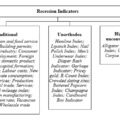All Visegrad countries (i.e. the Czech Republic, Hungary, Slovakia and Poland) have decreased their structural budget deficits below 3% of GDP by 2014 and, consequently, exited the Excessive Deficit Procedure – corrective arm of the Stability and Growth Pact of the EU. The external pressure from the European Commission played a crucial role in stabilizing their public finances after the crisis hit their economies in 2009 and 2010. In Poland and Slovakia also the internal debt brake rules added substantially to this pressure.
The implemented consolidation measures included increase in the retirement age (Poland), increase in direct income taxes and increase in the efficiency of tax collection (Slovakia), increase in VAT taxes (Poland, Slovakia), temporary freezing of public workers’ salaries (Poland, Hungary, Slovakia), cuts in several social benefits (all Visegrad countries) and many others.
The Czech Republic and Slovakia have reasonable chances to balance their budgets structurally by 2018. In Poland and Hungary this may take a longer time.
In terms of the public debt, the Czech Republic had the lowest level of 42.6% of GDP in 2014 followed by Poland with 50.1%, Slovakia with 53.6% and Hungary with 76.9% of GDP. In Poland and Hungary, substantial reduction of the public debt was achieved by one-off measures transferring assets from the private to the public pension scheme which will, however, increase public expenditure on pensions in the long-term. The same happened also in Slovakia, although to somewhat lesser extent.
Compared to rather stable public finances in Visegrad 4 countries Ukraine faces major economic crises caused by a dramatic political development and consequent armed conflict in the eastern regions of Donetsk and Luhansk. According to the International Monetary Fund (IMF), the public debt soared from 41% of GDP at the end of 2013 to 73% at the end of 2014 and is expected to reach 94% at the end of 2015. In fact, the country came to the brink of bankruptcy and relies on an international financial support.
The current priority for Ukraine is to stabilize the security and macroeconomic situation. At the same time it has to adopt series of structural reforms to create basis for sustainable development. Here, it can take a lot from the reform experience of the Visegrad 4 countries. In terms of the public finance consolidation, the main lessons include increasing transparency in public finances reporting, implementing internal debt brake rules, improving efficiency in tax collection, stabilizing the pension system, designing the motivational tax and social benefits systems and many other measures.
In fact Ukraine has already started to implement necessary changes for example by cancelling a number of tax exemptions and simplifying the tax system in 2014 or by recent deregulation of the gas prices. Together with the IMF it has also outlined an ambitious plan for further reforms. It will be crucial that the international community supports Ukraine in its reform effort. The Visegrad countries can and should give it a hand. Transferring their reform experience is a unique and very efficient opportunity. It is also in their utmost interest because due to geographical and cultural proximity, the Visegrad countries would be among countries mostly benefiting from the stable and prosperous Ukraine.
Peter Golias, INEKO
This blog post is a short summary of the results of research project "Hidden Triggers of Economic Growth in V4 Plus Ukraine" on public finance consolidation issues. The project is funded by the International Visegrad Fund and led by INEKO with partners from the Czech Republic, Hungary, Poland and Ukraine.







